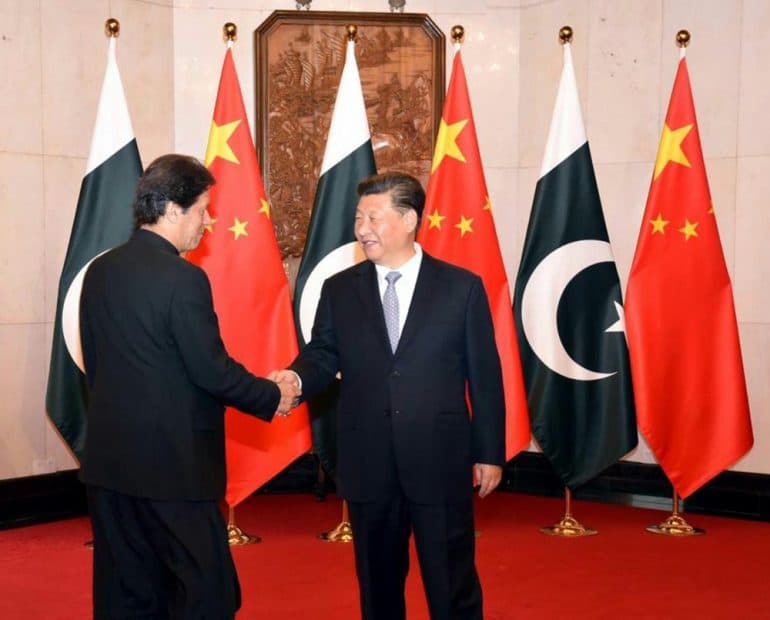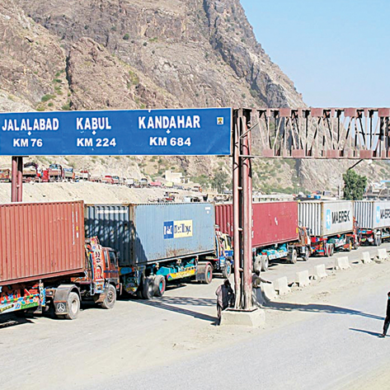Pakistan and China have agreed to resume negotiations within the Joint Economic Committee (JEC) framework after an 11-year hiatus.
The JEC forum has been put on hold while the China-Pakistan Economic Corridor (CPEC) project has been in the works for the past eight years.
Federal Minister for Economic Affairs Omar Ayub Khan gave the opening remarks at the 15th Session of the Pakistan-China Joint Economic Committee on Economic, Trade, Scientific, and Technical Cooperation, according to an official statement.
The JEC virtual meeting was co-chaired by China Vice Minister Ren Hongbin and Economic Affairs Division Secretary Mian Asad Hayaud Din. Ayub expressed his joy at the end of an “extraordinary” 70-year friendship between Pakistan and China.
To emphasize the significance of the event, he referred to the 1982 Bilateral Agreement for the Establishment of a Joint Committee for Economic, Trade, Scientific, and Technical Collaboration as the backbone of bilateral cooperation.
Pakistan and China, he stated, have always supported one other up on all fronts.
When the COVID-19 epidemic broke out, Pakistan was one of the first countries to express solidarity with China, and its president paid a visit to Beijing during the outbreak. Similarly, China’s government helped Pakistan prepare for a pandemic.
COVID-19 vaccinations were distributed as a priority and roughly four million doses of vaccines were provided free of charge to help Pakistan’s mass vaccination effort.
The minister for economic affairs stated that Pakistan and China are entering the next phase of the CPEC, which includes the establishment of Special Economic Zones (SEZs). According to him, the SEZs will attract foreign direct investment, construct industrial units, create jobs, and increase economic activity.
Similarly, the opening of the Gwadar Port will boost foreign trade, he added, noting that China has been Pakistan’s major trading partner for the past six years. According to him, China is Pakistan’s biggest import source and second-largest export destination at the moment.
The minister for economic affairs, highlighting Pakistan’s vast investment prospects in numerous areas, stated that Pakistan offers foreign investors and entrepreneurs a welcoming and liberal business environment. Under the Foreign Private Investment Promotion and Protection Act of 1976 and the Protection of Economic Reforms Act of 1992, all foreign investments are fully safeguarded.
He also mentioned that Special Economic Zones are being built to satisfy global competitiveness by providing state-of-the-art facilities and connectivity. The SEZ incentive package includes a 10-year income tax exemption as well as a one-time waiver of all customs tariffs and taxes on capital goods imports.
Pakistan’s textile, leather, pharmaceutical, and surgical sectors are among the best in the world, according to him, and are sold all over the world.
As a result, Chinese investors can benefit from Pakistan’s vast industrial potential.
According to Ayub, Pakistan’s Small and Medium Enterprises Development Authority and Board of Investment can work together with Chinese counterparts to improve industrial collaboration.
He also emphasized the importance of cooperative ventures and business-to-business ties in agricultural research, increased production, value addition, and food processing.
Both parties also discussed topics connected to energy, infrastructure, and social development projects. They also agreed to expedite the promotion of investment and industrial collaboration.
Din also discussed the promotion of bilateral commercial cooperation, the exchange of expertise in poverty alleviation, and the formation of collaborative working groups, as well as the enhancement of multilateral cooperation. The secretary of the economic affairs division praised the Chinese government’s efforts to combat the COVID-19 outbreak.
The productive discussions on bilateral economic connections between the two countries, according to China’s vice minister, would achieve the goals of deepening bilateral cooperation. He also expressed the hope that the next Pak-China Joint Economic Commission conference will be held in Pakistan soon.



